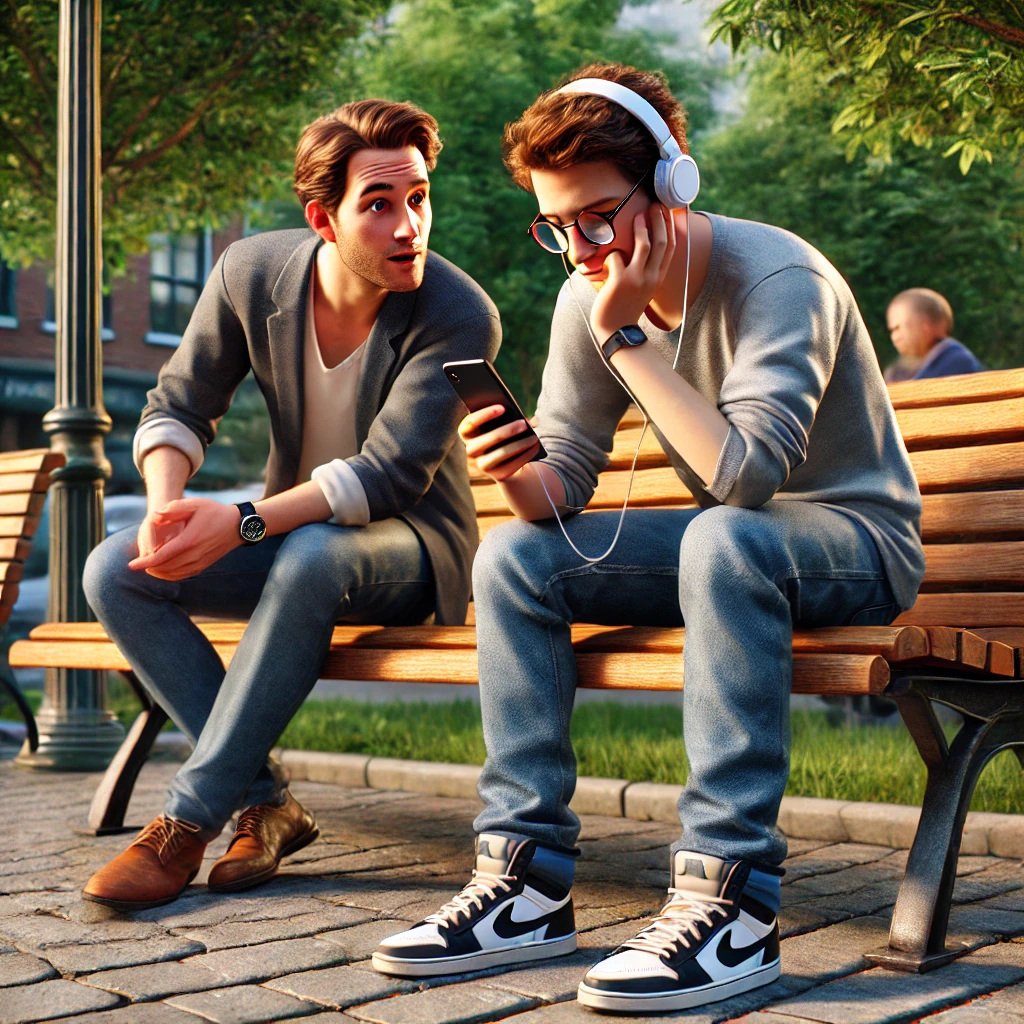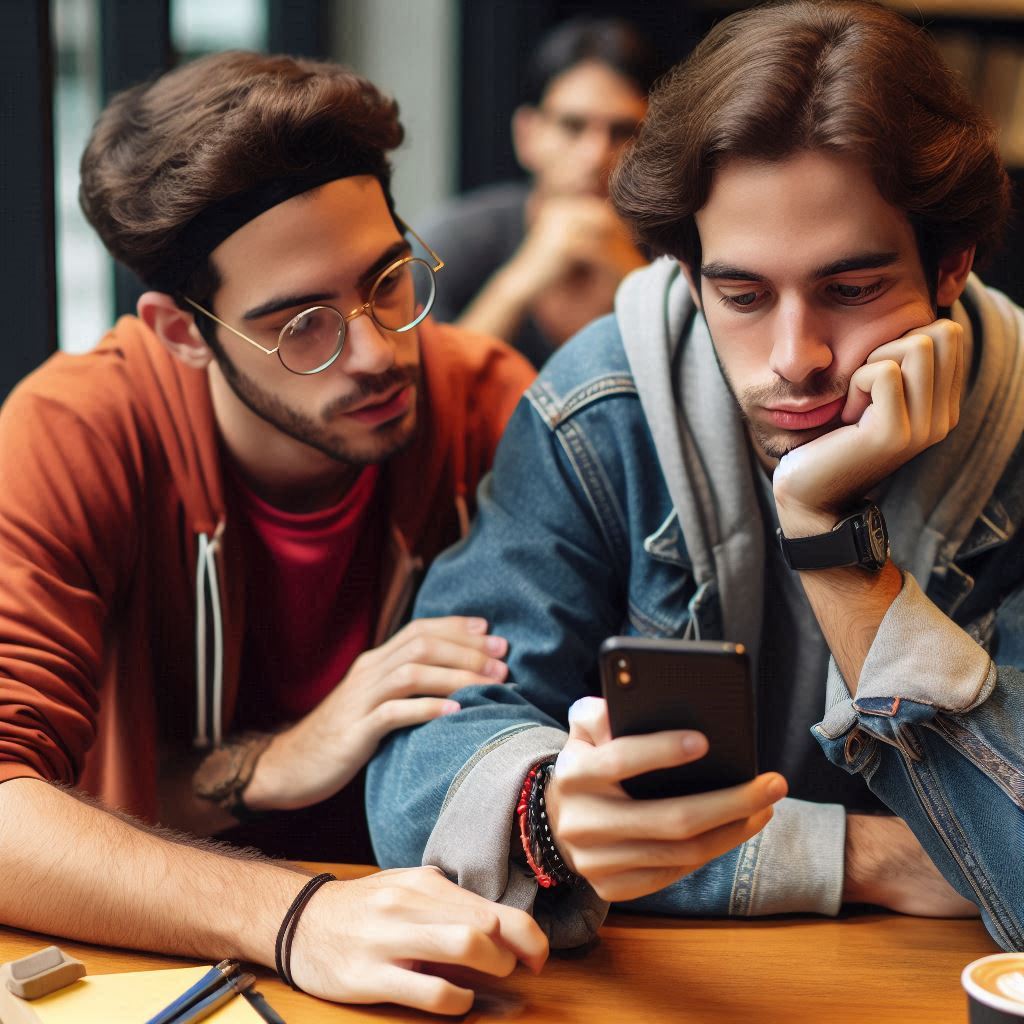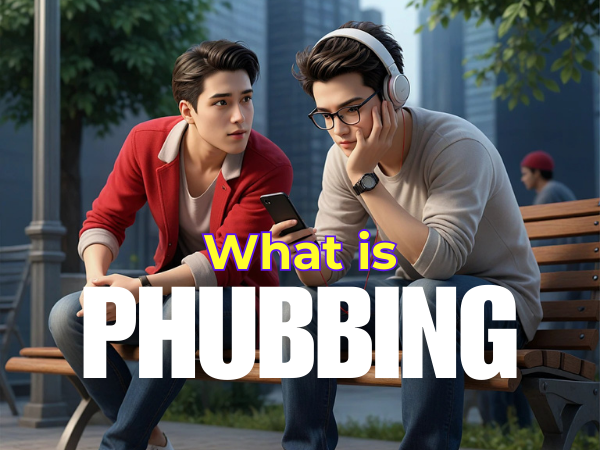What is Phubbing?

I. Introduction
Imagine you’re out for coffee with a friend, excited to catch up after a long week. You start sharing a story, but your friend is more engrossed in their phone than in your tale. You find yourself speaking to their forehead as they scroll through their social media feed. Frustrating, right? This behavior has a name: phubbing.
Phubbing is defined as the act of ignoring someone in favor of using a smartphone or other digital device. In our tech-centric world, it’s becoming increasingly common, and understanding phubbing is essential for navigating our modern relationships. In this blog post, we’ll explore what phubbing is, its origins, the reasons behind it, its effects on relationships, and practical tips to reduce it. Let’s dive in!
II. Origin and Meaning of Phubbing
History of the Term
The term “phubbing” was coined in 2012 by an advertising agency in Australia. It was an effort to capture the phenomenon of people prioritizing their phones over real-life social interactions. Suddenly, a new word was born to define a behavior many of us had likely experienced but never had a way to articulate.
Breakdown of the Word
“Phubbing” is a portmanteau, a blend of “phone” and “snubbing.” It clearly encapsulates the action: when one prioritizes their phone, they effectively snub the person sitting right beside them.
How Phubbing Differs from Other Types of Tech Use

While we all use phones, the concept of phubbing is distinct because it focuses on the social context. It isn’t about the casual glance at your device; phubbing involves actively choosing your phone over engaging with someone present in the same space. This behavioral aspect is what makes phubbing particularly problematic.
III. Causes of Phubbing
Psychological Reasons
One major factor driving phubbing is the psychological allure of smartphones:
- Dopamine Hits: Our phones are designed to engage us. Every notification, like, or message gives a little rush of dopamine—a feel-good neurotransmitter—reinforcing the urge to keep checking our devices.
- Fear of Missing Out (FOMO): The fear of missing important updates or events can lead us to check our phones constantly, even in social settings. This fear can be particularly strong during gatherings or when we know exciting things are happening outside our immediate vicinity.
Cultural Norms
In today’s society, it’s increasingly seen as normal—or even expected—to use your phone in social situations. This cultural shift encourages behavior that may otherwise seem rude, further cementing the habit of phubbing.
Lack of Self-Awareness
Many people don’t realize they’re phubbing or haven’t considered its impact on others. For those who have unconsciously formed a habit of prioritizing phone interactions over face-to-face ones, it can be hard to recognize when they’re engaging in phubbing.
IV. Effects of Phubbing on Relationships and Social Connections
Romantic Relationships
Research shows that phubbing can create feelings of neglect in romantic partners. When one person feels ignored, it can lead to dissatisfaction and even conflict over time, as emotional needs aren’t being met.
Friendships
Friendships can also take a hit. When friends feel undervalued because of constant phone use, it can lead to resentment and a potential breakdown in communication. Strong friendships require engagement, and phubbing disrupts that connection.
Family Connections
In family settings, phubbing can have significant repercussions. Children may feel neglected or unimportant if their parents constantly prioritize their devices. This can disrupt communication and bonding, crucial elements for a healthy family dynamic.
Workplace Relationships
Phubbing can create friction among colleagues, undermining team cohesion and productivity. In a professional environment, being overlooked because someone is glued to their phone can lead to tension and decreased morale.
V. Psychological and Emotional Impact of Phubbing on the “Phubbed” Person
Feeling of Rejection
The person who is phubbed often feels neglected, which can lead to feelings of rejection. This situation often brings about feelings of frustration and conveys that they’re unimportant to the phubber.
Self-Esteem Impact
Repeated instances of being ignored in favor of a smartphone can chip away at one’s self-esteem. When social interactions hinge on phone use, a person might start questioning their worth in relationships.
Social Anxiety and Loneliness
Studies have shown a connection between phubbing and heightened social anxiety. Being regularly ignored can contribute to loneliness, making people feel isolated even when surrounded by others.
VI. Phubbing and Its Link to Mental Health Issues
Stress and Anxiety
Both phubbers and those being phubbed can experience increased stress and anxiety. The pressure of maintaining relationships in a digital age often leads to mixed feelings about phone use.
Depression
Research has suggested a correlation between frequent phubbing (or being phubbed) and higher levels of depression. The feeling of disconnection associated with being ignored can significantly impact mental well-being.
Screen Addiction
Excessive phone use, which often fuels phubbing, can lead to screen addiction. This addiction not only affects interpersonal relationships but can also impair overall mental health.
VII. How to Recognize If You’re Phubbing or Being Phubbed
Self-Reflection
Take a moment to reflect on your behavior. Notice how often you choose your phone over face-to-face interactions. It’s an eye-opener for many.
Signs of Phubbing
Look out for behaviors like:
- Constantly checking notifications during conversations
- Struggling to stay engaged
- Feeling an overwhelming urge to use your phone even when meaningful conversations are happening
Impact on Relationships
Pay attention to how others respond when you are on your phone. Signs such as looking away, becoming silent, or losing interest can indicate that phubbing is affecting your interactions.
VIII. Practical Tips to Reduce Phubbing and Foster Better Connections
Set Phone Boundaries
Creating “no-phone zones” during meals or conversations can work wonders. Agree with friends and family to put away devices during shared moments.
Mindfulness Practices
Using mindfulness techniques to stay present can significantly dent the urge to check your phone. By being aware of your surroundings and the people in them, you can foster better interactions.
Use Technology Wisely
Leverage technology for better connections! Enable “do not disturb” modes or use screen time tracking apps to limit unnecessary phone use.
Communicate Openly
Discuss phubbing with loved ones openly. It’s important to understand its impact and come to a mutual agreement about phone use in social settings.
IX. Embracing Digital Etiquette and Improving Social Interaction
The Importance of Being Present
The value of being fully present in conversations cannot be overstated. It builds deeper connections and enhances empathy, leading to more meaningful interactions.
Setting an Example
By putting away your own phone during interactions, you lead by example. Show respect and attention to those around you, fostering a culture of engagement.
Creating Positive Social Norms
Building a “phubbing-free” social environment may seem small, but it can lead to considerable improvements in relationship quality. Every effort counts!
X. Conclusion
To recap, phubbing is the act of ignoring someone in favor of your smartphone and it can have real effects on relationships and mental health. Understanding its causes and impacts, and taking small, mindful steps to reduce it can foster genuine connections. Remember, while technology connects us to everyone else, let’s not forget to connect with those right in front of us.
References
National Institute of Health: A descriptive literature review of phubbing behaviors – PMC
Psychology Today: How Phubbing Makes a Partner Feel
FAQs on What is Phubbing
1. What is phubbing?
- Answer: Phubbing is the act of ignoring someone in your immediate social setting by focusing on a smartphone or other digital device. This term, a blend of “phone” and “snubbing,” describes a behavior that can negatively impact social interactions and relationships.
2. Why do people phub others?
- Answer: People often phub others due to the convenience of having constant access to information and social media, a fear of missing out (FOMO), or habit. Dopamine-driven notifications and updates make it tempting to check devices, sometimes without realizing the impact on those around them.
3. How does phubbing affect relationships?
- Answer: Phubbing can make others feel neglected, unimportant, or disrespected, leading to emotional disconnect. Over time, it can erode trust and intimacy, causing friction in romantic, friendly, and family relationships, and even impacting workplace dynamics.
4. Is phubbing linked to mental health issues?
- Answer: Yes, studies have found connections between phubbing and mental health concerns. Those who phub frequently may experience heightened stress and social anxiety, and individuals who are phubbed often may feel lonely, experience low self-esteem, and even develop depressive symptoms.
5. How can I tell if I’m phubbing?
- Answer: You may be phubbing if you frequently check your phone during conversations, feel a constant urge to check for notifications, or notice that people around you seem disengaged or frustrated. Reflecting on your phone habits in social situations can help identify and reduce phubbing behavior.
6. What are the main causes of phubbing?
- Answer: Phubbing is primarily driven by smartphone addiction, a need for instant information, the psychological pull of social media, and a desire to stay connected digitally. Cultural norms that increasingly accept phone use during social interactions also contribute to this habit.
7. How can I stop myself from phubbing?
- Answer: Setting boundaries, like keeping your phone out of sight during conversations, enabling “do not disturb” modes, practicing mindfulness, and being present with those around you are effective ways to reduce phubbing. Open communication about phone habits with friends and family can also help.
8. Is phubbing worse in certain cultures or age groups?
- Answer: While phubbing occurs globally, younger generations, who are typically more immersed in digital and social media, are more prone to it. Cultural acceptance varies, with some regions viewing it as normal while others may consider it disrespectful.
9. Can phubbing impact workplace relationships?
- Answer: Yes, phubbing in the workplace can reduce team cohesion, harm communication, and create an environment where colleagues feel undervalued or ignored. It can also reduce productivity and trust among team members.
10. What can I do if I feel hurt by someone who is phubbing me?
- Answer: If phubbing is affecting your relationship, address it openly and kindly. Let the person know how it makes you feel, suggest phone boundaries during shared time, and emphasize the importance of being present with each other. Respectful communication can often resolve the issue.
You May Also Like
Hospital Information System: Don’t Miss Out on 2024 Healthcare Innovations
Understanding Leptospirosis: A Comprehensive Guide to Animal Health in 2024
Ultimate Guide to Life Expectancy of PNH Disease and Key Factors: Mastering PNH Understanding
